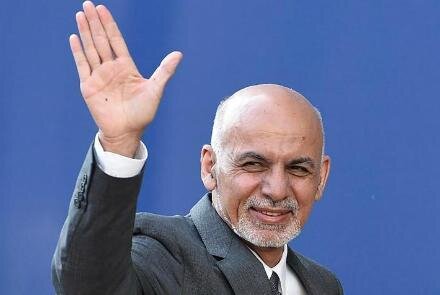The Taliban also came to Kabul with minimal casualties and did not enter a full-scale war and took over the presidential palace.
Ashraf Ghani's actions and destiny may be compared to the actions and destiny of the late Libyan leader Muammar Gaddafi. After years of revolution, Gaddafi accepted the US and Western conditions to end its nuclear program and halt Libya's defense, in hopes of lifting economic sanctions. He even claimed responsibility for the attack on a Pan-American Airlines plane or the Lockerbie plane crash, and to pay compensation to the families of the victims. But Gaddafi's reward was that the United States, with its ally Britain, used popular protests in Libya as an excuse to attack a country that had previously been disarmed. It so happened that Gaddafi lost everything, even his life, after five years of service to the US.
Ashraf Ghani, like Gaddafi, trusted the US and distanced himself from Afghanistan's independent and non-aligned politics after taking office. During his tenure, the Afghan government, military, and security structures, particularly the military and intelligence services, came under US control and were based on White House views. In pursuit of US policy, Ashraf Ghani released prisoners of the Taliban under the guise of normalizing relations with them and accepted removing the Taliban from terrorist lists, finding international status, and even negotiating with the United States. During his presidency in Afghanistan, the Tajiks, Hazaras, Uzbeks, and other non-Pashtuns lost their political role and were completely marginalized.
At the behest of the US, Ghani turned a blind eye to the transfer of the ISIS to Afghanistan, prompting members of the terrorist group to carry out their duties in Afghanistan on behalf of the United States after defeats in Syria and Iraq.
In line with Washington, Ashraf Ghani weakened relations with Afghanistan's neighbors and friends, including Iran, Russia, and China, and retaliated against the Persian language which is the afghan main language.
But the US, like Gaddafi, left Ashraf Ghani alone and doesn't support him. The US military destroyed Afghanistan after 20 years of failure to fight the Taliban and withdrew from the country. Afghanistan's weak army, which was to be turned into a strong one by NATO, also left the Taliban alone to watch. Thus, despite the lack of military superiority, the Taliban easily captured the cities of Afghanistan and eventually Kabul.
In this regard, the Afghan people, who were not happy with Ashraf Ghani, and other ethnic groups who considered the Afghan president to be a weak-willed and loyal American leader, simply watched the Taliban advance.
The result of the US and NATO military presence in Afghanistan was the escape of the legitimate president of this country and the Taliban's domination of Afghanistan.
Today, Afghanistan, a country with different ethnic groups, none of which has an absolute majority, is going through a complex and sensitive period. There is no doubt that the Taliban are part of the Afghan people and their role in the formation of the future government cannot be denied. It should not be forgotten that the Taliban's insistence on the withdrawal of foreign troops from Afghanistan and the group's practical actions against foreign forces were the main reason for the withdrawal of the United States and NATO from Afghanistan. At the same time, other ethnic groups, including Tajiks, Hazara Shiites, and Uzbeks, must share in the future destiny of the country in order to achieve a just and lasting peace. We should not forget the struggle of these groups against the occupation of Afghanistan by the Soviet Union.
The absolute domination of the Taliban over the government and people of Afghanistan and the creation of a new dictatorship is not in the interest of the people of this country and the region and does not fulfill the aspirations of the Afghan people to have a prosperous and stable land. Naturally, the formation of a government consisting of all sects and ethnic groups to create stability and security in Afghanistan will be acceptable to the people of this country and have international legitimacy. In this situation, it is appropriate for Iran and other countries in the region to continue their mediation activities and help to create an independent, stable and prosperous Afghanistan.
3266**2050
Follow us on Twitter @IrnaEnglish
